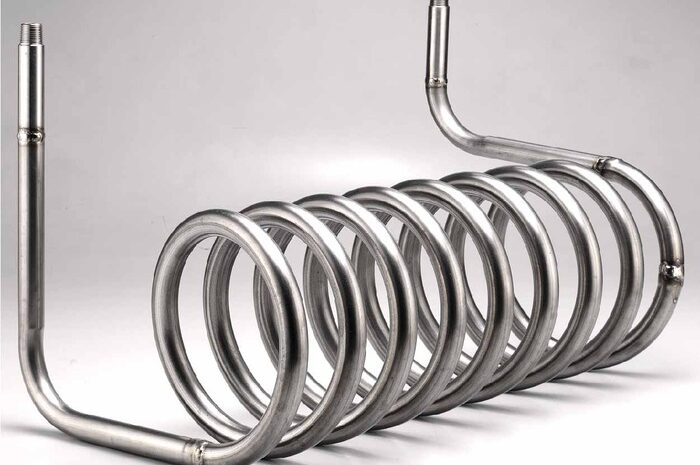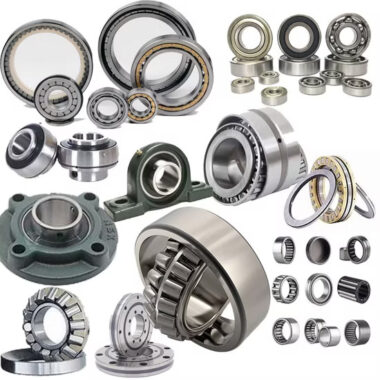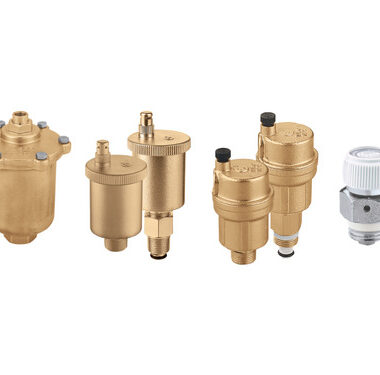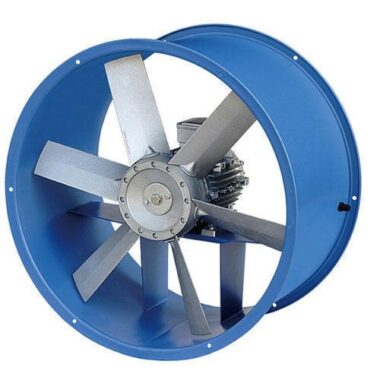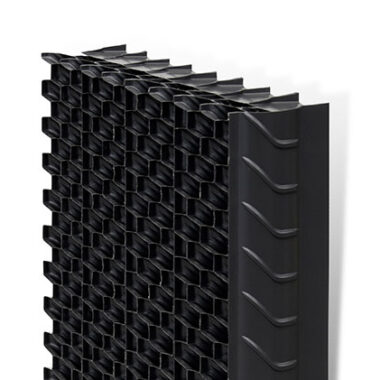Titanium Exchanger Coils
Introduction
Titanium exchanger coils represent a significant advancement in heat transfer technology, offering unmatched benefits over traditional materials like copper, aluminum, and stainless steel. Their unique properties, particularly high resistance to corrosion, excellent strength-to-weight ratio, and exceptional thermal conductivity, make titanium an ideal choice for industries where conventional materials would fail. Whether in chemical processing, marine applications, or HVAC systems, titanium coils are designed to handle demanding environments, ensuring the longevity and efficiency of heat exchangers. These coils are becoming essential components in systems that need to transfer heat between fluids effectively while preventing contamination and material degradation. As industries evolve and face greater challenges related to corrosion, energy efficiency, and sustainability, the role of titanium exchanger coils is becoming increasingly critical. The continued innovation in titanium manufacturing and design is paving the way for even more efficient, cost-effective, and reliable heat transfer solutions, making them a go-to option for specialized applications.
Key Benefits of Titanium Exchanger Coils:
Corrosion Resistance: Titanium is one of the most corrosion-resistant metals known, particularly in environments where traditional materials like steel or copper would fail. Titanium coils can withstand exposure to aggressive chemicals, such as chlorides, acids, and saltwater, without corroding or degrading. This makes them perfect for use in marine environments, where they are exposed to seawater, and in chemical processing plants where aggressive chemicals can quickly damage conventional materials. Furthermore, titanium naturally forms a passive oxide layer, providing added protection and ensuring it maintains its integrity over extended periods of exposure to harsh conditions.
Strength and Durability: Titanium’s high strength-to-weight ratio ensures that the coils are both strong and lightweight, enabling them to handle high-pressure systems without excessive weight. This durability allows the coils to withstand mechanical stresses and high operational temperatures, ensuring long-term reliability even in demanding environments. The ability of titanium to maintain its strength at both high and low temperatures makes it an ideal material for cryogenic applications or high-temperature processing in industries like aerospace, energy, and metallurgy.
Longevity: One of the key advantages of titanium exchanger coils is their long lifespan. The inherent corrosion resistance of titanium significantly reduces the need for frequent replacements, unlike conventional materials that may require regular servicing or replacement due to wear and tear. Titanium’s resistance to pitting, crevice corrosion, and galvanic corrosion means that it can last for decades with minimal degradation. This longevity reduces operational downtime and maintenance costs, providing significant long-term cost savings.
High Thermal Efficiency: Titanium coils offer exceptional thermal conductivity, allowing them to efficiently transfer heat between two fluids. The smooth surface of titanium minimizes fouling and scaling, which are common problems with traditional materials that can impede the heat transfer process. Titanium’s resistance to these problems ensures that the heat exchanger operates at its optimal efficiency for a longer time, even under harsh conditions. Moreover, titanium coils can maintain high heat transfer rates across a broad range of temperatures and pressures, enhancing the overall efficiency of the heat exchange process.
Low Maintenance: Due to the corrosion-resistant properties of titanium and its ability to form a stable oxide layer, titanium coils require less maintenance than other materials. The natural resistance to buildup of mineral deposits, contaminants, and biological growth minimizes the need for regular cleaning or servicing. This reduces operational downtime and helps maintain the efficiency of the heat exchanger system over its lifecycle. In addition, titanium’s resistance to fouling and scaling results in lower maintenance costs compared to other materials, such as copper or stainless steel.
Lightweight: Titanium’s low density makes it a lightweight option for heat exchangers, reducing the overall weight of the system. This is particularly beneficial in applications where weight reduction is critical, such as in aerospace cooling systems and marine equipment. The reduced weight also makes installation and handling easier, providing more flexibility when integrating titanium coils into complex systems.
Biocompatibility: Titanium is non-reactive with biological substances, making it a suitable choice for applications in the pharmaceutical industry and biotechnology. It is highly biocompatible and non-toxic, ensuring that there is no risk of contamination in sensitive processes that require precise temperature control. Titanium’s resistance to biofouling and its ability to maintain sterile conditions make it ideal for cooling and heat exchange in bioreactors, pharmaceutical manufacturing, and medical equipment.
Customization: Titanium coils can be fabricated in a variety of shapes, sizes, and configurations, allowing for flexibility in design. Whether the application requires compact heat exchangers for limited space or larger configurations for high-volume processing, titanium coils can be customized to meet specific thermal management needs. This versatility ensures that titanium is applicable across a wide range of industries, from energy generation to HVAC systems, food and beverage processing, and chemical industries.
Applications of Titanium Exchanger Coils:
-
Marine Industry: Titanium’s resistance to seawater corrosion makes it a preferred material for cooling systems in ships, submarines, and offshore platforms. The coils are used in the cooling of engines, desalination plants, and HVAC systems in marine vessels, where traditional materials would fail due to prolonged exposure to saltwater.
-
Chemical Processing: In industries dealing with aggressive chemicals, titanium provides protection against corrosion and contamination, making it ideal for heat exchangers that handle acidic fluids or reactive chemicals. Titanium coils are used in reactor cooling, distillation units, and systems involving chlorine or other corrosive substances.
-
Desalination Plants: Titanium coils are commonly used in desalination plants, where they facilitate the heat exchange process between seawater and fresh water. The corrosion-resistant properties of titanium ensure the long-term durability of the system, reducing maintenance and operational costs.
-
HVAC Systems: In specialized heating and cooling systems for industries that require effective temperature control, titanium coils are used to improve the efficiency of air conditioning and heating systems. These systems can benefit from titanium’s resistance to fouling and scaling, improving long-term system reliability.
-
Pharmaceutical Manufacturing: Titanium’s biocompatibility and resistance to contamination make it ideal for use in pharmaceutical manufacturing processes that require clean, sterile, and efficient heat exchange. It is particularly useful in drug manufacturing and sterilization processes.
Future Trends and Innovations in Titanium Exchanger Coils:
Advanced Coating Technologies: To enhance titanium’s already impressive resistance to corrosion, future trends may focus on applying advanced coatings or surface treatments to titanium coils. These coatings can provide even higher protection against aggressive chemicals, extreme temperatures, and wear, improving the coils’ lifespan and efficiency in more demanding applications.
3D Printing of Titanium Coils: The advent of 3D printing in manufacturing processes opens up new possibilities for the customization and fabrication of titanium exchanger coils. 3D printing allows for the creation of complex geometries that may not be possible with traditional methods. This innovation could lead to more efficient heat exchangers, optimized fluid flow, and reduced material waste.
Hybrid Titanium Alloys: Research into hybrid titanium alloys, which combine titanium with other metals to enhance specific properties, is an emerging trend. These alloys could further improve the thermal conductivity, strength, or corrosion resistance of titanium coils, making them even more versatile in extreme environments.
Energy Efficiency Innovations: As industries focus on energy conservation and sustainability, titanium heat exchanger coils will likely play a key role in green energy solutions. Innovations in energy recovery systems and waste heat recovery could lead to even more efficient applications of titanium coils in industries such as renewable energy and industrial waste management.
Miniaturization for Emerging Technologies: With the continued growth of technologies like microelectronics and nanotechnology, the demand for compact and highly efficient heat exchangers will increase. Titanium coils will evolve to meet the need for miniaturized thermal management systems in cutting-edge applications like data centers, electronics cooling, and battery thermal management.
Conclusion
Titanium exchanger coils are redefining the way heat transfer systems operate in some of the most demanding and corrosive environments. Their combination of corrosion resistance, high durability, and long lifespan offers substantial advantages over traditional heat exchanger materials, ensuring that systems remain operational and efficient for extended periods. As industries like pharmaceuticals, chemical processing, marine, and energy generation continue to require specialized materials that can withstand extreme conditions, titanium’s role is more crucial than ever. The future of titanium exchanger coils looks promising with the integration of innovative manufacturing techniques such as 3D printing, advanced coatings, and hybrid alloys. These innovations will likely push the boundaries of what’s possible in heat transfer applications, making titanium even more versatile, energy-efficient, and cost-effective. By incorporating titanium coils into thermal systems, industries can ensure improved operational performance, reduced maintenance costs, and a more sustainable future, making it a material of choice for advanced heat exchange solutions.


